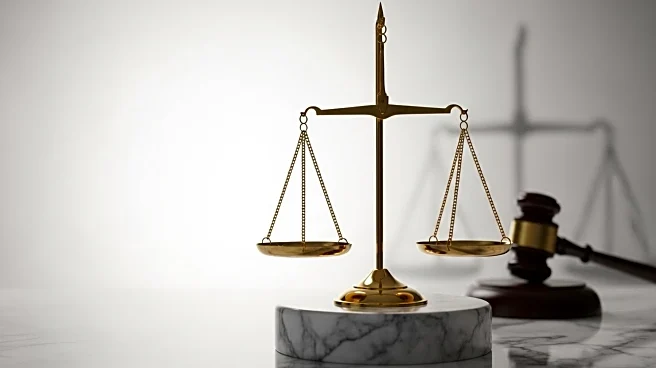What's Happening?
The Supreme Court has indicated a majority support for allowing candidates for federal office to challenge state election laws without the need to demonstrate personal harm. This development comes as the court reviews cases that could potentially reshape the legal landscape regarding election regulations. The move is seen as a significant shift in judicial approach, potentially broadening the scope for candidates to contest state-imposed election rules. The court's decision could impact how election laws are enforced and challenged across the United States, providing candidates with more leeway in questioning the legality and fairness of state election procedures.
Why It's Important?
This potential change in judicial stance is crucial as it could alter the balance of power between state and federal election oversight. By allowing candidates to challenge state election laws more freely, the Supreme Court may enable greater scrutiny and accountability in how elections are conducted. This could lead to increased litigation and legal challenges, affecting the stability and predictability of election processes. Stakeholders such as political parties, election officials, and voters may experience shifts in how elections are managed and contested, potentially influencing voter turnout and confidence in electoral systems.
What's Next?
If the Supreme Court formalizes this stance, it could lead to a surge in legal challenges against state election laws, prompting states to reassess and possibly revise their election regulations. Political leaders and advocacy groups may mobilize to either support or oppose these changes, depending on their interests and the perceived impact on electoral fairness. The decision could also spark debates on federalism and the appropriate level of state autonomy in managing elections, influencing future legislative and judicial actions.
Beyond the Headlines
The broader implications of this development may include ethical and legal debates about the role of the judiciary in election oversight. Questions about the balance between state rights and federal intervention in elections could become more pronounced, potentially affecting long-term policy decisions. Additionally, this shift may influence public perception of the judiciary's role in safeguarding democratic processes, impacting trust in both state and federal institutions.











